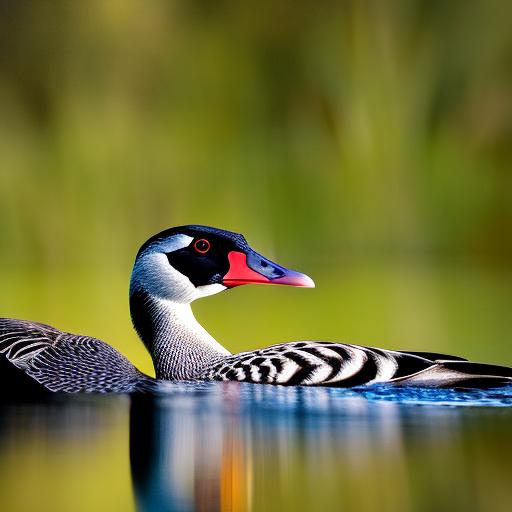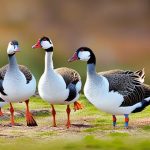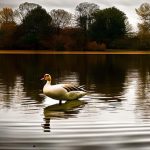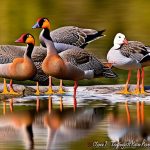Keeping geese in your pond can be a rewarding and enjoyable experience. Geese are popular pets for many reasons, including their beauty, intelligence, and social nature. They can also provide practical benefits, such as controlling algae and weeds in your pond, fertilizing the water, and contributing to the overall ecosystem. If you have a pond on your property and are considering adding geese to your outdoor space, this article will provide you with all the information you need to get started.
Key Takeaways
- Keeping geese in your pond can be a rewarding experience.
- Geese can help control algae and weed growth in your pond.
- Different breeds of geese have different temperaments and needs.
- Your pond should have adequate space, shelter, and clean water for geese.
- Feeding geese a balanced diet and protecting them from predators are important for their health and safety.
Benefits of Keeping Geese in Your Pond
One of the main benefits of keeping geese in your pond is their ability to control algae and weeds. Geese are natural grazers and will happily munch on the vegetation that grows in and around your pond. This can help keep the water clear and prevent excessive growth of algae and weeds. By introducing geese to your pond, you can reduce the need for chemical treatments or manual labor to maintain the health and appearance of your water feature.
In addition to their role in controlling vegetation, geese also contribute to the overall health of the ecosystem in your pond. Their droppings act as a natural fertilizer, enriching the water with nutrients that promote the growth of beneficial bacteria and aquatic plants. This can create a balanced and thriving ecosystem that supports a variety of wildlife, including fish, frogs, and insects.
Choosing the Right Breed of Geese for Your Pond
When choosing geese for your pond, it’s important to consider the different breeds available and their characteristics. Some breeds are better suited for certain climates or pond sizes than others. For example, Toulouse geese are known for their hardiness and adaptability to different climates, making them a good choice for ponds in colder regions. Embden geese, on the other hand, are larger and more suitable for larger ponds or open spaces.
It’s also important to consider the temperament of the breed you choose. Some geese breeds are more docile and friendly, while others can be more aggressive or territorial. If you have children or other pets, it’s important to choose a breed that is known for being gentle and tolerant.
Preparing Your Pond for Geese
Before introducing geese to your pond, there are a few necessary preparations that need to be made. First, it’s important to test the water quality of your pond to ensure it is safe and suitable for geese. This can be done by taking a water sample to a local laboratory or using a home testing kit. The results will help you determine if any adjustments need to be made to the pH levels or nutrient levels in the water.
It’s also important to ensure that your pond is safe for geese. This includes checking for any potential hazards, such as sharp objects or toxic plants, and making any necessary repairs or modifications. Additionally, you may want to consider adding floating platforms or islands in the pond to provide resting areas for the geese.
Feeding and Watering Your Geese in Your Pond
Feeding and watering your geese in your pond is an important aspect of their care. Geese require fresh water at all times, so it’s important to provide them with a clean and accessible water source in your pond. This can be achieved by installing a shallow water dish or a small pool specifically designed for geese.
In terms of feeding, geese have specific dietary requirements that need to be met in order for them to thrive. A balanced diet for geese typically consists of a combination of grass, grains, and vegetables. It’s important to provide them with a variety of foods to ensure they receive all the necessary nutrients. You can also supplement their diet with commercial goose feed, which is formulated to meet their nutritional needs.
Providing Shelter for Your Geese in Your Pond
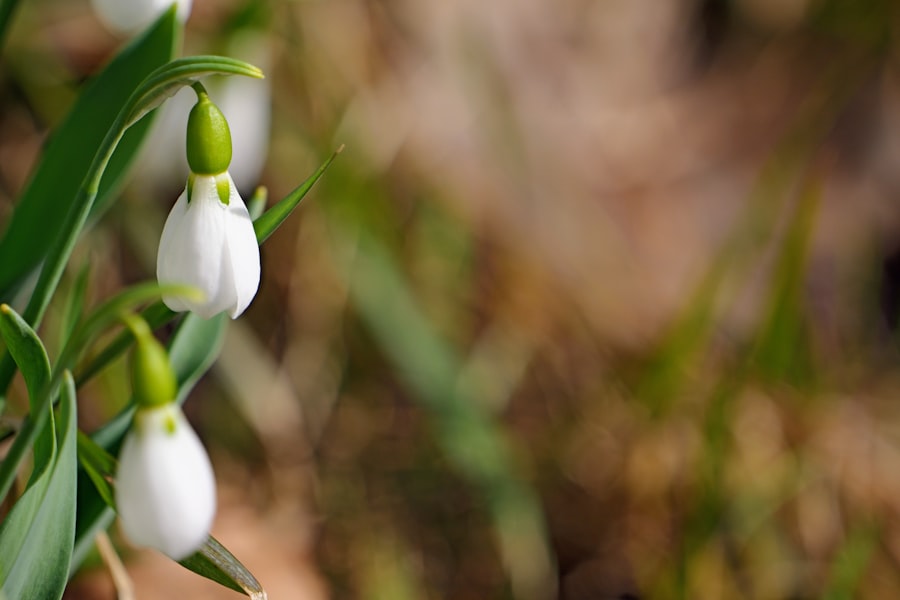
Providing shelter for your geese in your pond is essential for their well-being and safety. Geese need a safe and secure place to rest, sleep, and seek shelter from the elements. There are different types of shelters available, including simple structures like wooden huts or more elaborate structures like goose houses.
When choosing a shelter for your geese, it’s important to consider their specific needs and preferences. The shelter should be large enough to accommodate all the geese comfortably and provide protection from predators. It should also be well-ventilated and have adequate bedding material to keep the geese warm and dry.
Maintaining the Health of Your Geese in Your Pond
Maintaining the health of your geese in your pond is crucial for their overall well-being. Regular observation and monitoring of your geese is important to detect any signs of illness or injury. Common signs of illness in geese include lethargy, loss of appetite, abnormal droppings, or changes in behavior.
To prevent illness, it’s important to provide your geese with a clean and sanitary environment. This includes regularly cleaning their shelter, providing fresh bedding material, and ensuring that their water source is clean and free from contaminants. It’s also important to provide them with a balanced diet that meets their nutritional needs.
If you notice any signs of illness in your geese, it’s important to consult a veterinarian who specializes in avian medicine. They will be able to diagnose the problem and recommend appropriate treatment options.
Protecting Your Geese from Predators in Your Pond
Predators can pose a threat to your geese in your pond, so it’s important to take steps to protect them. Common predators that may target geese include foxes, raccoons, coyotes, and birds of prey.
One effective way to protect your geese from predators is by installing a fence around your pond. This can help keep out larger predators and provide a physical barrier of protection. Additionally, you can use netting or wire mesh to cover the pond and prevent birds of prey from swooping down and attacking the geese.
It’s also important to create a safe and secure environment for your geese to retreat to when they sense danger. This can be achieved by providing them with hiding spots, such as dense vegetation or artificial shelters, where they can seek refuge.
Managing the Population of Geese in Your Pond
Managing the population of geese in your pond is important to prevent overcrowding and maintain a healthy balance in the ecosystem. Geese are known for their prolific breeding habits, so it’s important to implement population control measures to prevent an overabundance of geese.
One method of population control is egg addling, which involves removing and treating eggs to prevent them from hatching. This can be done by shaking or coating the eggs with oil, which renders them infertile. Another method is relocation, which involves capturing and relocating geese to another suitable habitat.
It’s important to consult with local wildlife authorities or experts before implementing any population control measures, as there may be specific regulations or guidelines that need to be followed.
Enjoying the Company of Geese in Your Pond
Having geese in your pond can bring joy and entertainment to your outdoor space. Geese are social animals that enjoy interacting with their human caretakers. They can be trained to respond to commands and even perform simple tricks.
Interacting with your geese can be as simple as spending time with them in their enclosure, observing their behavior, and providing them with treats or toys. You can also engage in activities such as walking or swimming with your geese, which can strengthen the bond between you and provide them with mental and physical stimulation.
Keeping geese in your pond can be a rewarding and fulfilling experience. They provide practical benefits such as controlling algae and weeds, fertilizing the water, and contributing to the overall ecosystem. By choosing the right breed, preparing your pond, providing proper care and shelter, and implementing population control measures, you can enjoy the company of geese in your pond for years to come. So why not consider adding geese to your outdoor space and experience the joy of having these beautiful creatures as pets?
If you’re interested in keeping geese in your pond, you might also want to consider creating a suitable shelter for your feathered friends. Poultry Wizard offers a helpful article on turning a shed into a chicken coop, which can easily be adapted for geese. This resource provides valuable insights and practical tips on how to transform a shed into a comfortable and secure space for your geese to roost and nest. Check out the article here to learn more about creating the perfect home for your geese.
FAQs
What are the benefits of keeping geese in your pond?
Geese can help control algae growth in your pond, provide natural fertilizer for plants, and add aesthetic value to your property.
What type of geese are best for pond keeping?
Domestic breeds such as Toulouse, Embden, and Chinese geese are popular choices for pond keeping due to their calm temperament and adaptability to different environments.
What should I feed my pond geese?
Geese should be fed a balanced diet of grains, vegetables, and protein sources such as insects or fish. It is important to avoid feeding them bread or other processed foods as it can lead to health problems.
How do I protect my pond geese from predators?
Predators such as raccoons, foxes, and coyotes can pose a threat to pond geese. Installing fencing or netting around the pond and providing shelter for the geese can help protect them from predators.
How do I maintain the cleanliness of my pond with geese?
Regular maintenance such as removing excess debris and monitoring water quality can help keep your pond clean with geese. It is also important to avoid overfeeding the geese as it can lead to excess waste in the pond.
Do geese require any special care or attention?
Geese require regular access to clean water, shelter, and a balanced diet. They also need to be monitored for any signs of illness or injury. It is important to provide them with a safe and comfortable environment to thrive in.
Meet Walter, the feathered-friend fanatic of Florida! Nestled in the sunshine state, Walter struts through life with his feathered companions, clucking his way to happiness. With a coop that’s fancier than a five-star hotel, he’s the Don Juan of the chicken world. When he’s not teaching his hens to do the cha-cha, you’ll find him in a heated debate with his prized rooster, Sir Clucks-a-Lot. Walter’s poultry passion is no yolk; he’s the sunny-side-up guy you never knew you needed in your flock of friends!

